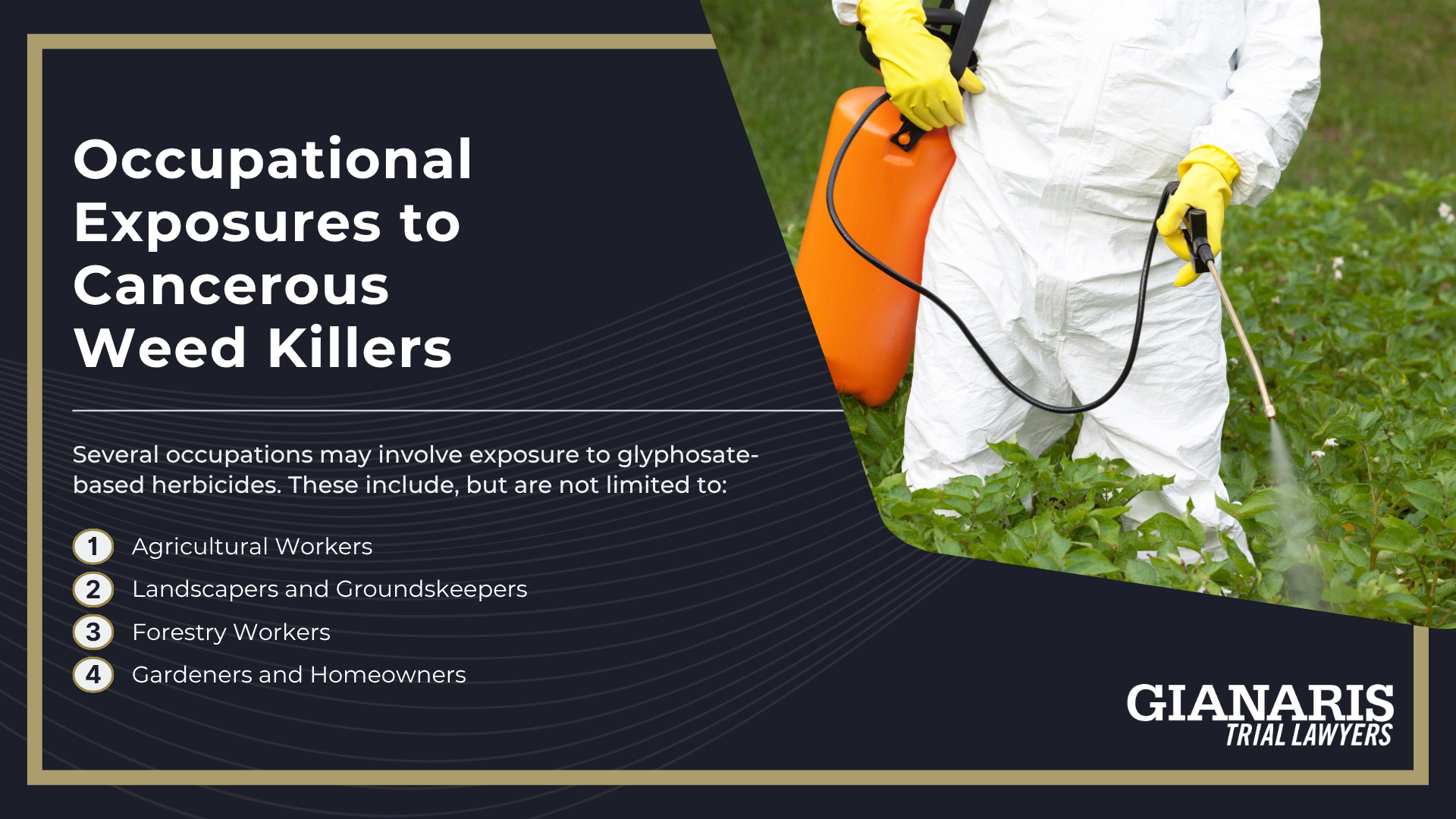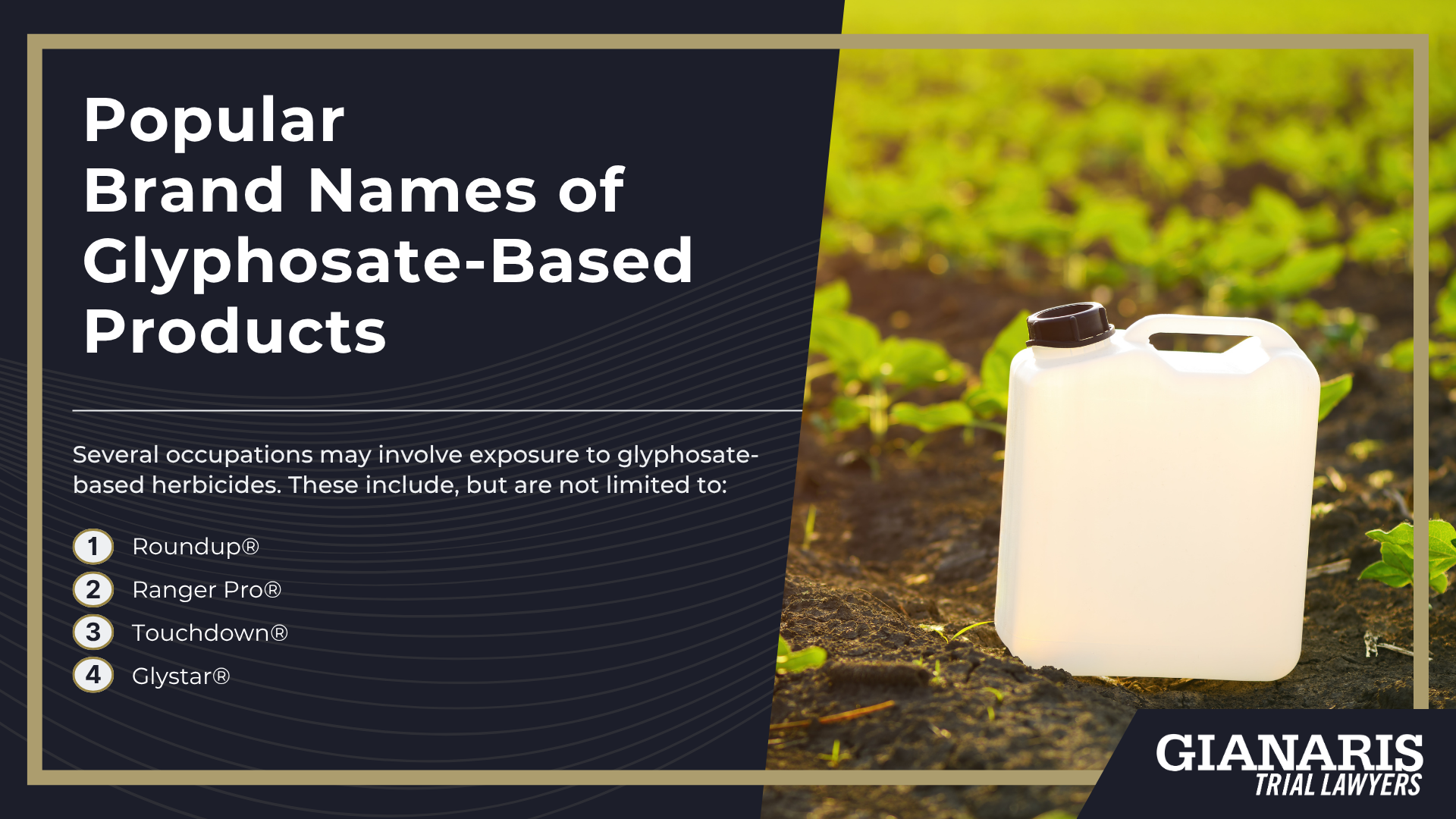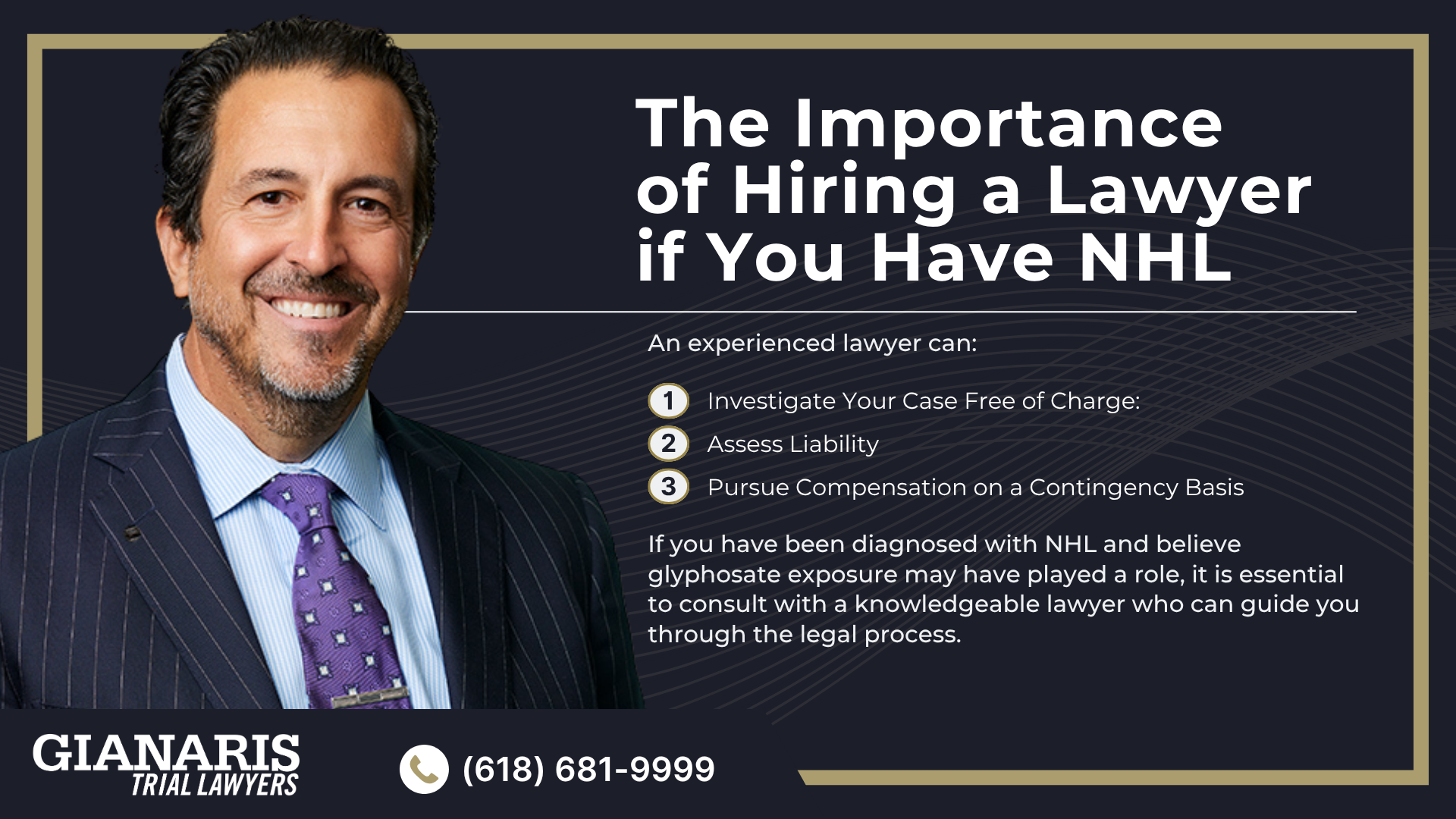
Several occupations may involve exposure to glyphosate-based herbicides. These include, but are not limited to:
- Agricultural Workers: Farmers, farmworkers, and agricultural laborers involved in crop cultivation and weed control may come into contact with glyphosate during their work.
- Landscapers and Groundskeepers: Professionals responsible for maintaining landscapes, parks, and gardens often use glyphosate-based herbicides for weed management.
- Forestry Workers: Those involved in forestry management, including tree planters and workers dealing with invasive species, may encounter glyphosate during vegetation control activities.
- Gardeners and Homeowners: Glyphosate-based herbicides are commonly used by gardeners and homeowners to manage weeds in residential and commercial settings.
Popular Brand Names of Glyphosate-Based Products:

Glyphosate is found in various herbicides marketed under different brand names, including:
- Roundup®: Manufactured by Monsanto (now owned by Bayer), Roundup® is one of the most recognized glyphosate-based herbicides available.
- Ranger Pro®: Produced by Monsanto, Ranger Pro® is another popular glyphosate-based herbicide used for agricultural and non-agricultural purposes.
- Touchdown®: Marketed by Syngenta, Touchdown® is a glyphosate-based herbicide widely used in agricultural applications.
- Glystar®: Produced by Albaugh, Glystar® is a brand of glyphosate herbicide used in agriculture and non-crop settings.




